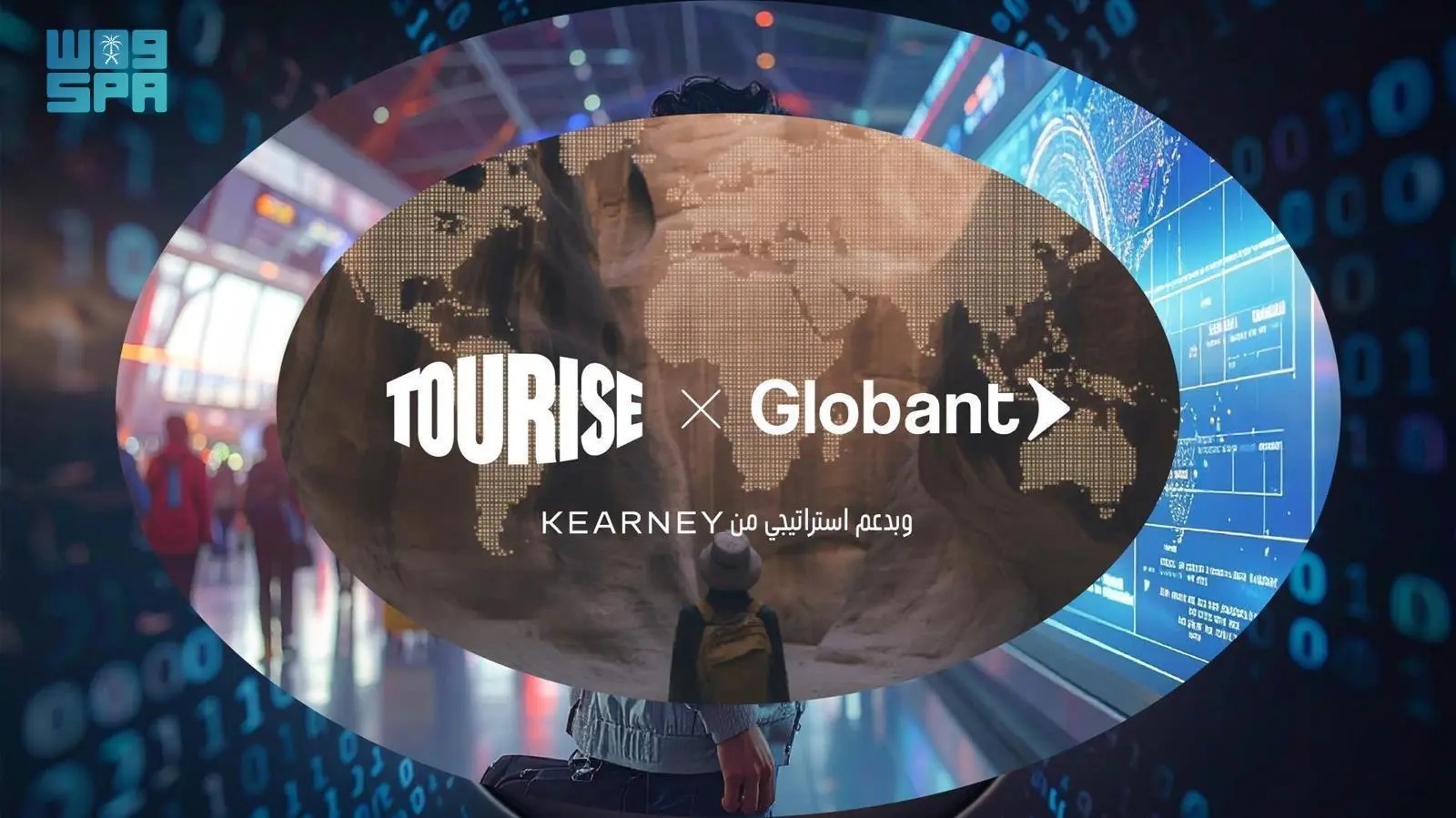
TOURISE, Globant Unveil Report on Agentic Tourism that Sets New Standards for AI-Driven Destination Innovation
TOURISE and Globant, a digitally native company that helps organizations thrive in a digital and AI-powered future, with strategic contribution from Kearney, introduced a new white paper titled "Tourism’s AI Takeover: Reinventing Travel through Agentic Tourism." Released ahead of the inaugural TOURISE Summit in Riyadh this November 11 to 13, 2025, the paper presents a practical framework for transforming the tourism experience, making it more seamless, intelligent, and emotionally resonant.
“Agentic Tourism is not just a model. It is a movement and those who adopt it first will shape the trajectory of future sector disruption,” said Minister of Tourism and Chairman of the Board of TOURISE Ahmed Al-Khateeb, “AI empowers every country to embrace an era that uplifts both established and emerging destinations, ensuring inclusive access for all.”
“Tourism’s next chapter will be championed by destinations that orchestrate technology around people, not the other way around,” said CEO and Co-Founder at Globant Martin Migoya. “Agentic Tourism provides a blueprint to digitize end-to-end digital experiences so hosts, travel operators, and destinations can transform isolated innovations into interconnected, adaptive, and meaningful interactions at every journey.”
The white paper offers a roadmap for public and private sector leaders to apply AI across five key dimensions: experience, operations, sustainability, well-being, and economic opportunity. The goal is to help destinations across the entire tourism ecosystem act now, scale responsibly, and remain human-centered.
Agentic Tourism, the paper said, introduces a system of autonomous AI agents governed by people and shared standards. These agents are designed to deliver measurable impact.
The model includes five agent archetypes: Experience Maximizer: curates and adapts itineraries in real time, managing disruptions and enhancing personalization; Operations Optimizer: balances staff, assets, and services to improve efficiency and reduce bottlenecks; Regeneration Guardian: surfaces environmental and social impacts to promote responsible travel choices; Wellness Agent: uses contextual data to support traveler health, comfort, and safety; and Opportunity Connector: matches visitors’ interests to local networks, events, and collaborators to create economic value.
In 2024, tourism generated $10.9 trillion, nearly 10% of global GDP, and is projected to reach $16.5 trillion by 2035.
According to the paper, AI in the tourism market is expected to grow from $3.4 billion in 2024 to $13.9 billion by 2030; destinations face a clear choice: evolve with coordinated AI adoption or risk fragmentation, inefficiency, and diminished traveler satisfaction.
The white paper serves as a strategic playbook, helping tourism destinations, governments, operators, platforms, and communities implement these innovations without losing the human touch that defines meaningful travel.
The full white paper is available at TOURISE.com.








